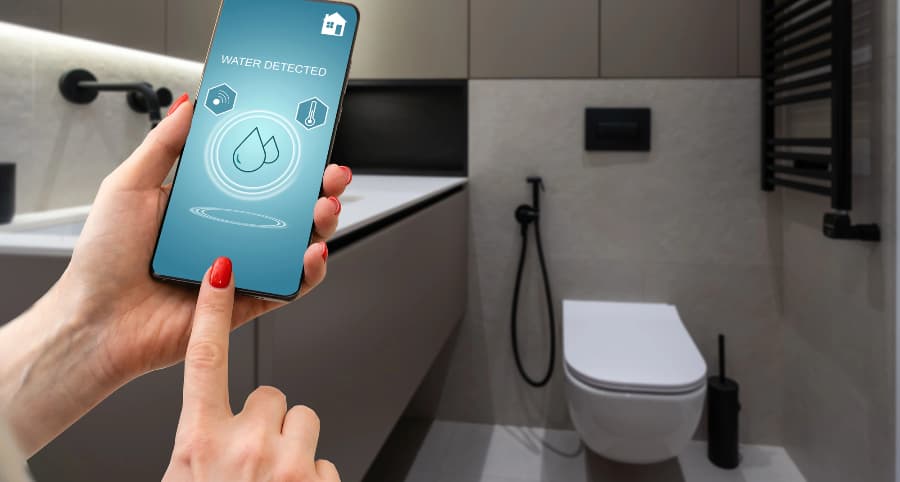How does a water sensor work and why connect one to your Richmond smart home?

One small leak at your property can result in major issues and thousands of dollars in damage. You need to defend against this threat; luckily, there’s a straightforward way to accomplish this. A water sensor is an effective, simple, and budget-friendly solution. See how they work and why you ought to incorporate water sensors into your Richmond smart home.
How water sensors safeguard Richmond properties
Water infiltrates homes in numerous ways, whether from a plumbing failure, storm-related incident, appliance snafu, or simple human error. However it happens, you have to know at once, and this is why water sensors are important. But how exactly do they work?
The majority of water sensors are conductive and operate with a pair of electrodes. When water infiltrates the space between the electrodes, an electrical circuit is created, activating your alarm. You’ll also come across capacitive sensors that give off an electrical field. Your alarm sounds when water touches the conductive areas of these components and disrupts the field. Optical sensors utilizing infrared LED light are an additional option.
Some water sensors give you more
Certain specialized water sensors provide even more protection as they feature built-in temperature sensors. This is an effective way to prevent pipe freezing. If there’s a severe decrease in temperature, you’ll find out immediately. Taking action before pipes break will save you from flooding and costly repairs.
Why connect water sensors to your Richmond smart home?
When water emergencies happen, you must be warned at once. You can reach this goal by connecting water sensors to your smart home. Whether you’re on site to hear the alarm or somewhere else, you’ll receive an automatic notification on your mobile device. As an additional backup, your round-the-clock monitoring team will be informed. Every second is critical in a water emergency to control the damage and interruption to your family.
Where should you put water sensors?
Any area prone to flooding is an ideal place for water sensors. Place them in these spots:
- Bathrooms: Position at the back of toilets or near bathtubs.
- Basements: Water often seeps into lower levels via cracked walls or because of excess rain or malfunctioning sump pumps.
- Next to water heaters or appliances: Any water-using appliance could ultimately leak.
- Underneath sinks: Water sensors are ideal for discovering plumbing leaks in place hidden from view.
- Attics: Catch roof leaks quickly and avoid expensive repairs.
Install water sensors with your Vivint smart home
Give your property the robust protection it deserves with modern components from Vivint. Our water sensors in Richmond link to your Vivint cell phone app to send you automatic updates when your alarm is triggered. You also benefit from built-in temperature sensors to prevent frozen pipes. Learn more about the smart home components available in Richmond by dialing (804) 534-2782 today.